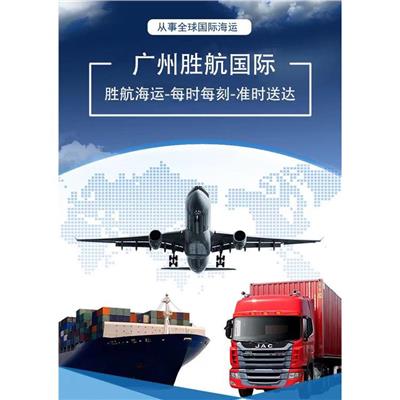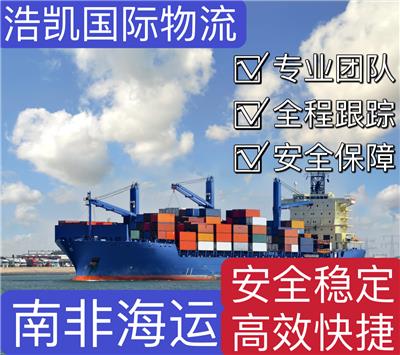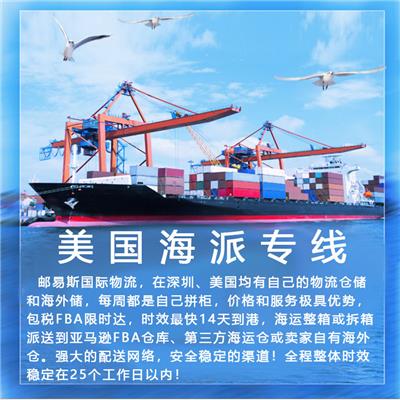How to make domestic e-commerce goods safer and more convenient to avoid the US's high tariff restrictions on China--Malaysia entrepot e-commerce DDP double-clearance tax package to door.
- 时间:2023-02-24作者:深圳市鑫瑞达货运代理有限公司浏览:152
How to make domestic e-commerce goods safer and more convenient to avoid the US's high tariff restrictions on China--Malaysia entrepot e-commerce service one-stop operation DDP double-clearance tax package to door.
At present, for domestic e-commerce goods, double-clearance and tax-included goods are frequently inspected due to frequent problems with falsely declared product names, resulting in large fees and even deduction of goods, fines, and abandonment of goods that cannot be borne by the carrier. Issuing relevant documents (such as certificate of origin, etc.) through Malaysian re-export to avoid, the simple process of Malaysian re-export: the goods are first shipped from the Chinese port to Klang West Port, Malaysia--clear customs and enter the local bonded warehouse to change cabinets--take pictures--re-declaration for export-- After the Malaysian bill of lading is issued, apply for the Malaysian CO Certificate of Origin--U.S. customs clearance (Malaysian original COPY file information), generally speaking, wood furniture, plastic products are 0 tariffs, metal products, stone and textiles are 3%-8.5% tariffs are not etc., see the HS code for details.
Analysis of the advantages and disadvantages of re-export in Malaysia: Advantages:
A>Transportation cost: Fees are charged by container, unlike e-commerce goods that are charged by kilograms, and the transportation cost is greatly reduced.
B> Tariff cost: Generally, China has 25% trade war tariffs + fixed point tariffs (see HS code for details) when going to the United States. Most of the taxes are one of the reasons for the high cost of double clearance. In the past, Malaysia generally only had 0 or 0 taxes in the United States. Fixed point tariff (HS CODE+0.125%+0.3464%), therefore, Malaysia has obvious advantages in terms of cost savings.
C>Risk analysis: China's direct shipping FBA double-clearance service generally has a lot of false declarations and customs clearance. Considering customs experience and mood, that is to say, there are more so-called fluke attempts, which may easily cause the goods to be inspected, detained or even The risk of being paid for the second shipping fee (charged by KG), while Malaysia re-export is charged by container, no matter the value of the goods is large or small, the goods are declared against the version, and the documents can be issued by several different shippers, such as wood products. Classes, metal products, etc., a container container can be divided into 2-3 bills of documents to reduce the inspection risk, even if the inspection as long as the goods have little impact on the board, and the inspection is divided into X-ray scanning and manual inspection, it is also divided into borders, Agriculture, FBI inspection, the probability of the latter two is relatively small, therefore, Malaysia’s re-export advantages are more obvious-effectively reduce costs and inspection risks, and the goods will not be detained for the whole container operation, even if the probability of one in ten thousand will be inspected The worst result can only be to return the shipment, and then re-arrange the transfer to the United States...
Disadvantages: Time cost: Malaysia’s re-export to the United States will take 15-20 days longer than the direct flight. After all, the China Hong Kong-Malaysia flight time is about 9-12 days (Shenzhen direct flight is 5 days), so as long as the customer It is acceptable to adjust and buffer the time. It is necessary to communicate with foreign customers to avoid displeasure.
Summary: Based on the above analysis and comparison, whether it is safety, transportation costs or tariff costs, Malaysian entrepot trade is the most ideal arrangement, but the time cost is slightly higher. For some urgent goods or project goods, it is necessary to make reasonable use of arrangements before doing so. For a long-lasting and stable business, our company is willing to join hands with all friends to open up a new path for e-commerce goods re-export, to become bigger and stronger...
Professional entrepot trade, ten years as one day:
Samples of CO re-exported from Malaysia to the United States are as follows:
深圳市鑫瑞达货运代理有限公司专注于转口贸易,进口,反倾销等
词条
词条说明
印度对华家电用钢化玻璃/渔网启动反倾销调查终裁--马来西亚转口出FORM AI产地证规避!
印度对华家电用钢化玻璃启动反倾销调查--马来西亚转口出FORM AI产地证规避!2022年9月30日,印度商工部发布公告称,应印度The Federation of Safety Glass (FOSG)代表国内企业提交的申请,对原产于或进口自中国的厚度在1.8毫米至8毫米之间、面积小于等于0.4平方米的家电用钢化玻璃(Toughened Glass for home appliances hav
2020年5月15日,印度商工部发布公告称,对原产于或进口自中国、日本、韩国、中国闽台地区和越南的数字胶印印版(Digital Offset Printing Plates)作出反倾销终裁,建议对上述涉案国家/地区的涉案产品从2020年1月30日开始征收为期5年的反倾销税,具体征税详情见附表(涉案企业征税表)。用于特殊材料(例如信用卡,安全卡等)上及非纸上印刷的无水胶印CTP版不适用此次反倾销措施
2020年3月5日,巴西外贸秘书处发布2020年*12号公告,对原产于中国的铅笔(葡萄牙语:lápis de escrever,desenhar e/ou colorir)作出反倾销初裁:(1)初步裁定涉案产品存在倾销行为并对国内产业造成损害,且涉案产品的倾销与国内产业损害存在因果关系。中国涉案企业浙江江山龙腾笔业有限公司(Zhejiang Jiangshan Longteng Pen Indus
2020年7月20日,越南工贸部发布*1900/QĐ-BCT号决议,对原产于中国、马来西亚和泰国的双轴取向聚丙烯薄膜(越南语:màng BOPP)作出反倾销终裁,决定对中国、马来西亚和泰国涉案产品分别征收9.05~23.71%、18.87~23.42%和17.30~20.35%的反倾销税,自2020年7月23日起生效,有效期为5年。本案涉及越南税号3920.20.10和3920.20.91项下的产
联系方式 联系我时,请告知来自八方资源网!
公司名: 深圳市鑫瑞达货运代理有限公司
联系人: 廖生
电 话: 0755-82493225
手 机: 13418470281
微 信: 13418470281
地 址: 广东深圳龙岗区龙颈坳路37号城市山海鼎汇B栋202
邮 编:
相关推荐
相关阅读
1、本信息由八方资源网用户发布,八方资源网不介入任何交易过程,请自行甄别其真实性及合法性;
2、跟进信息之前,请仔细核验对方资质,所有预付定金或付款至个人账户的行为,均存在诈骗风险,请提高警惕!
- 联系方式
- 相关企业
- 深圳市龙航通国际物流有限公司
- 深圳市墨通达供应链有限公司
- 佛山市赣信达物流有限公司
- 小袋鼠集运(广州)国际物流有限公司
- 江苏鲸宝国际物流有限公司
- 深圳市中邮**供应链有限公司
- 深圳市中邮**供应链有限公司
- 深圳市速邮达物流有限公司
- 义乌市易佰供应链管理有限公司
- 深圳市博邦物流有限公司
- 商家产品系列
- 产品推荐
- 资讯推荐











